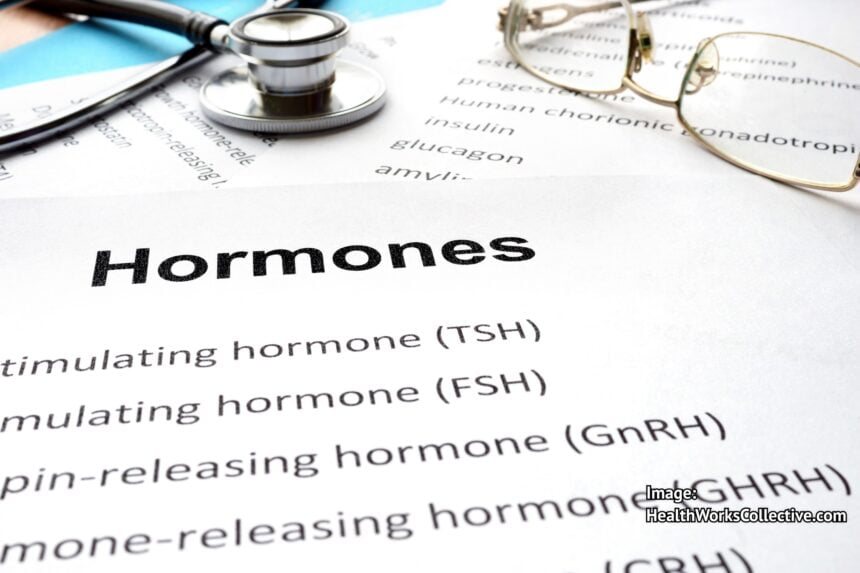Hormonal health and well being have received plenty of attention lately, both from the medical community as well as from health-conscious public. With erratic and unpredictable lifestyles and a range of environmental factors working against it, it is not surprising that we find our adrenal health out of whack. The endocrine system along with the nervous system is responsible for initiating, controlling and regulating all our bodily functions. The endocrine system secretes hormones that act as chemical messengers and helps regulate metabolic and biochemical activities. The hormones also facilitate transport of substances across cell membranes. Adrenal hormones like cortisol, estrogen, progesterone and testosterone play a very important role in defining our sexual behavior, moods, sleep patterns, ability to handle stress and metabolism. Any imbalance can have far reaching repercussions. It is important that you detect any imbalance in time to prevent it from adversely affecting your wellbeing. Also, women are more prone to hormone imbalances because our bodies are constantly producing hormones for various activities like bringing about puberty, maintaining monthly menstrual cycles and supporting pregnancy. There are a few things you need to know about the key hormones testing methods to ensure a healthy wellbeing. Let’s see the type of hormones in our body: 1. Adrenaline Adrenaline is one of the most important hormones produced by the adrenal gland. It prepares your body for a fight or flight response. Adrenaline is a stress response that prepares you to face highly stressful situations and is usually found in low levels in the body. But many of us are perpetually under stress to meet work deadlines, satisfy family needs and in the end of the day, just hold everything together. When adrenaline levels are constantly high in the body, a range of health problems pop up. Dizziness, heart problems, high blood pressure, sweating, weight loss, insomnia and anxiety are all symptoms associated with abnormally high adrenaline level in the body. Also adrenaline releases glucose which is used up by body during stress, but in the absence of stress this glucose accumulates and gives rise to serious health issues. 2. Cortisol Cortisol is a critical steroid hormone that is made in the adrenal glands. It is secreted as a response to signals sent by the pituitary gland, hypothalamus and adrenal gland. Almost all cells have cortisol receptors that help the hormone to bind with them and affect various functions. Cortisol regulates metabolism, controls blood sugar, maintains salt and water balance, reduces inflammation and also assists in memory formation. In women healthy cortisol level is essential to support fetal growth during pregnancy. Cortisol also affects immunity. Too much of cortisol can cause weight gain, high blood pressure, osteoporosis, mood swings and muscle weakness. Increased level of cortisol also affects a woman’s libido and moods, and disrupts her menstrual cycle. Insomnia is also noticed in women with high level of cortisol and low levels of estrogen and progesterone. 3. Estrogen Estrogen is one of the most important sexual hormones produced in a woman’s body. It is responsible for the onset of puberty in girls and initiates development of secondary sexual features. Estrogen regulates menstrual cycles and plays a very crucial role in pregnancy. The unpleasant morning sickness during the first trimester is caused by rapid increase in estrogen level. In the second trimester estrogen promotes milk duct development and enlargement of breasts. Estrogen imbalance can cause a wide range of adverse reactions in a woman’s body. Estrogen is a key player in maintaining bone health, controlling cholesterol and improving health of tissues. Low sex drive, moodiness, irregular or non-existent menstrual cycle, insomnia, hot flashes and dry skin are often indicators of low estrogen level. High level of estrogen is usually seen in women who take birth control pills having the hormone. Low sex drive, weight gain, acute PMS (premenstrual syndrome), fibroids and depression are symptoms of high estrogen level in the body. Infertility issues also have their root cause in estrogen imbalance. 4. Progesterone Progesterone is the happy female sexual hormone that helps ease PMS symptoms, elevate moods and regulate thyroid functions. The steroid hormone is secreted in the ovaries, adrenal glands and placenta (during pregnancy). Progestrone plays a very critical role in supporting and maintaining pregnancy. After fertilization, progesterone stimulates thickening of uterine wall lining and maintains a favorable environment for the embryo to grow and develop. The hormone inhibits release of further eggs and ovulation. Progesterone also prepares breasts for milk production. Women with progesterone deficiency will experience erratic periods, painful PMS and difficulty in conceiving. Women who do get pregnant despite low progesterone levels will face problems like spotting, abdominal pain and possibility of miscarriage. Another health issue is that low progesterone level in the body will lead to estrogen dominance. This in turn can cause health issues like gall bladder problems, poor sex drive and excessive weight gain. Conclusion Understanding hormones and the vital role they play in our lives is extremely important. This will help you spot irregularities regarding your body, moods or behavior that could possibly indicate hormonal imbalance. So get to know these powerful little messengers in your body and develop better awareness of your health.
4 Hormones That Play a Critical Role in Your Well being

Share This Article
Erica Montes is a digital content editor for LiveWellTesting based in sunny San Diego, California. She is immersed in the healthcare industry and her aim is to raise awareness about hormones and various hormone testing kits available off the shelf. In her free time, she enjoys making "healthy" dessert alternatives and trying to get as many Fitbit steps as possible.
